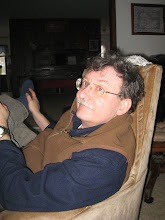This is a large excerpt from Bishop Willimon's latest post. I am highlighting his last paragraph!
...So one of the most radical, truly countercultural acts that we perform in Sunday worship is when we gather and then open an ancient book -- written in languages quite unlike our own, in cultures very different from ours - and we become silent, and we listen to the word read and proclaimed and thereby we say to ourselves, “These ancient Jews know more than we.”
John Wesley had a vivid sense of Scripture as a talking book. In his first collection of published sermons, Sermons on Several Occasions, Wesley said that he aspired to be “a man of just one book.” With Wesley we believe that through this collection of ancient writings, God has uniquely spoken to the People of God. And even more remarkable, we believe that God - Father, Son, and Holy Spirit - speaks to us today through Scripture. John Wesley taught that Scripture is “God breathed,” that God continues to show us divine wisdom and guidance through Scripture.
Though a few confused United Methodists may have been “literalists,” or “fundamentalists” in their reading of Scripture, we have never officially been so limited. We have too much respect for our dependence upon the Holy Spirit in our scriptural interpretation, and a healthy acknowledgement of the distance between Scripture’s originating context and our own situations, as well as a too vivid sense of the reality of a living, resurrected and revealing Lord. We have found that the Bible’s word is enlivened through scholarly study rather than muted and that the word the Bible speaks is always multivocal, thick, lively, relevant and rich. The Bible intends to be more for us than just a book of rules, a repository of helpful principles for better living. Attempts to use the Bible like that are bound to be frustrated by the nature of the Bible’s way with the truth. Scripture is an attempt to construct a new world, to stoke, fund and fuel our imaginations. The Bible is an ongoing debate about what is real and who is in charge and where we’re all headed. So the person who emerged from church one Sunday (after one of my most biblical sermons, too!), muttering, “That’s the trouble with you preachers. You just never speak to anything that relates to my world,” makes a good point.
To which the Bible replies, “How on earth did you get the idea that I want to speak to your world? I want to rock, remake, deconstruct and rework your world!”
So when someone says that Scripture, contrary to the way United Methodists see it, is impractical and unrealistic, tell them that what they probably mean is that Scripture is difficult and demanding. When we read Scripture, allowing it to have its authoritative way with us, submitting to its peculiar way of naming the world, we are being changed, transformed, sanctified in the hearing. God is breathing an enlivening Holy Spirit upon us, Jesus is speaking directly to us, and a new world is being created by the Word. It’s Genesis 1 all over again.
Thus when we read Scripture, we’re not simply to ask, “Does this make sense to me?” or “How can I use this to make my life less miserable?” but rather we are to ask in Wesleyan fashion, “How would I have to be changed in order to make this Scripture work?” Every text is a potential invitation to conversion, transformation, and growth in grace. And, as we have noted earlier, we Wesleyans love to get born again, and again. Scripture is God’s appointed and most frequently used means for getting to us and getting at us and thereby changing us in the encounter.
William H. Willimon http://willimon.blogspot.com
Subscribe to:
Post Comments (Atom)


No comments:
Post a Comment